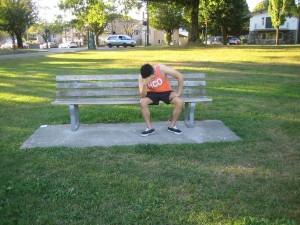The sinuses are mucus-lined cavities filled with air which normally drain into

the nasal cavity and are primarily involved in many upper respiratory infections such as acute sinusitis. During the onset of acute sinusitis the openings into the nasal passages are normally clear and infections normally resolve promptly. However, if their drainage is severely compromised or obstructed by existing medical conditions such as a deviated septum, nasal polyps, and tumor growths, sinus infection may persist as a smoldering (persistent) secondary infection.
Acute sinusitis (inflammation of the sinuses) is an infection of the sinuses and its underlying mucous membranes that line the paranasal cavity. Acute sinusitis refers to a rapid onset infection in one or more of the paranasal sinuses that typically resolves with treatment, whereas sub acute sinusitis is a persistent purulent nasal discharge despite treatment which lasts less than three months.
Pathophysiology of Acute Sinusitis
Acute sinusitis once it becomes chronic due to repeated or inadequate treatment of acute infections, irreversible damage to the mucosa may occur. Acute sinusitis if left untreated often follows an upper respiratory infection or cold such as an unresolved viral or bacterial infection or an exacerbation of allergic rhinitis. Nasal congestion caused by inflammation and edema can result in obstruction of the nasal cavities. This in turn provides for an excellent medium for bacterial growth. Other conditions that block the normal flow of sinus secretions include abnormal structures of the nose, diving and swimming, tooth infection, trauma to the nose, tumor growth and undo pressure of foreign objects.
Clinical manifestations of acute sinusitis
Symptoms if acute sinusitis can greatly vary among people and are dependent on the age of the person. Most infections in adults involve the maxillary and anterior ethmoidal sinuses. Symptoms may include facial pain or pressure over the affected sinus area, nasal obstruction, fatigue, purulent nasal discharge, fever, headache, ear pain and a sense of fullness, dental pain, decreased sense of smell, sore throat early morning periorbital edema (swelling of the area around the eyes along with a worsening cough when the individual is lying down. If untreated, acute sinusitis may lead to severe and occasionally life threatening complications such as meningitis, brain abscess and in worst cases of recurrent and untreated infections can lead to ischemic brain infarction.
Medical management of acute sinusitis
The goal of treatment of acute sinusitis is to treat the infection, shrink the nasal mucosa and relieve pain.s Because of growing concern regarding inappropriate use of antibiotics for viral upper respiratory infections and the resulting resistance that has occurred, careful consideration must be given to the potential pathogen before antibiotic agents are prescribed. Treatment of acute sinusitis typically involves nasal decongestants. Decongestants or
nasal saline spray can greatly improve the patency of the nasal cavity and significantly improve drainage of the sinuses . Moreover, traditional home remedies for nasal congestion brought about by acute sinusitis include heated mist or steam inhalation and saline irrigation which can improve and help in clearing out blocked passages. In the case of unrelieved acute sinusitis wherein symptoms persist longer that 10 days, hospitalization may be required for further examination and management.
